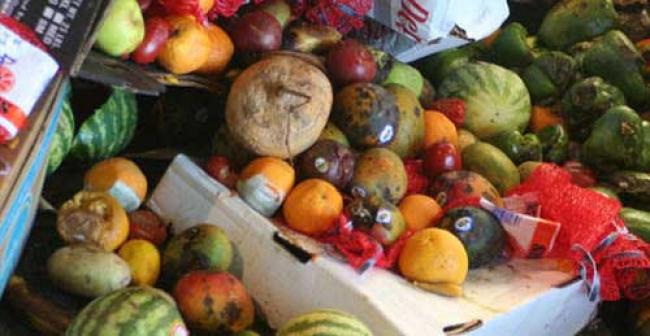Geopolitics
Poverty UN initiative tackles food losses in African nations
24 Dec 2013, 08:10 am Print

New York, Dec 24 (JEN): Three Rome-based United Nations agencies are teaming up on a USD 2.7 million project to tackle the problem of food losses in developing countries, beginning with pilot programmes in Burkina Faso, the Democratic Republic of the Congo (DRC) and Uganda.
Globally, around one-third of all food produced for human consumption is lost or wasted each year, amounting to 1.3 billion tonnes – enough food to feed 2 billion people – according to a joint news release by the Food and Agriculture Organization (FAO), the International Fund for Agricultural Development (IFAD) and the World Food Programme (WFP).
The three-year project by the agencies is funded by the Swiss Agency for Development Cooperation and focuses on food losses in developing countries, which can occur during harvesting, processing, transportation and storage as a result of inadequate infrastructure or lack of skills and technology.
It will focus in particular on reducing losses of grains and pulses such as maize, rice, beans and cow peas – staple foods that play a significant role in global food security and have a major impact on the livelihoods of millions of smallholder farmers.
Grain losses in sub-Saharan Africa alone are worth potentially USD 4 billion a year and could meet the minimum annual food requirements of at least 48 million people, according to a 2011 report by the World Bank, FAO and the United Kingdom’s Natural Resources Institute.
The project will, among other things, identify critical points for losses in pulse and grain supply chains in Burkina Faso, DRC and Uganda, and identify and test potential solutions to issues such as ineffective harvesting and handling, storage moisture levels, attacks by rats, birds and other pests, and insect damage.
“When some 840 million people are going hungry every day, we have an ethical responsibility to ensure that food produced is in fact consumed and not lost or wasted,” said Jong Jin Kim, Director of FAO’s Programme Support Division, speaking on behalf of the three agencies.
“Reducing food loss and waste will make significant amounts of additional food available, and at lower environmental costs, which is also critical in view of the need to produce 60 per cent more food by 2050 to meet the demands of a growing population.”
In total, food losses and waste account for about 30 per cent of cereals, 40-50 per cent of root crops, fruit and vegetables, 20 per cent of oilseeds, meat and dairy, and 30 per cent of fish produced each year, according to FAO.
One-third of all food produced worldwide is lost or wasted. Credit: FAO
More Geopolitics
- Hunger reached ‘alarming’ ten-year high in 2017, according to latest UN report
- Hunger rates remain high amid conflict, climate shocks, warns UN food security report
- On International Day, UN chief urges action to address root causes of poverty
- Rural areas have potential to feed and employ 'younger, more crowded planet' – UN report
- ‘Surge of solidarity’ can halt spread of poverty, Cameroon’s President tells UN Assembly






